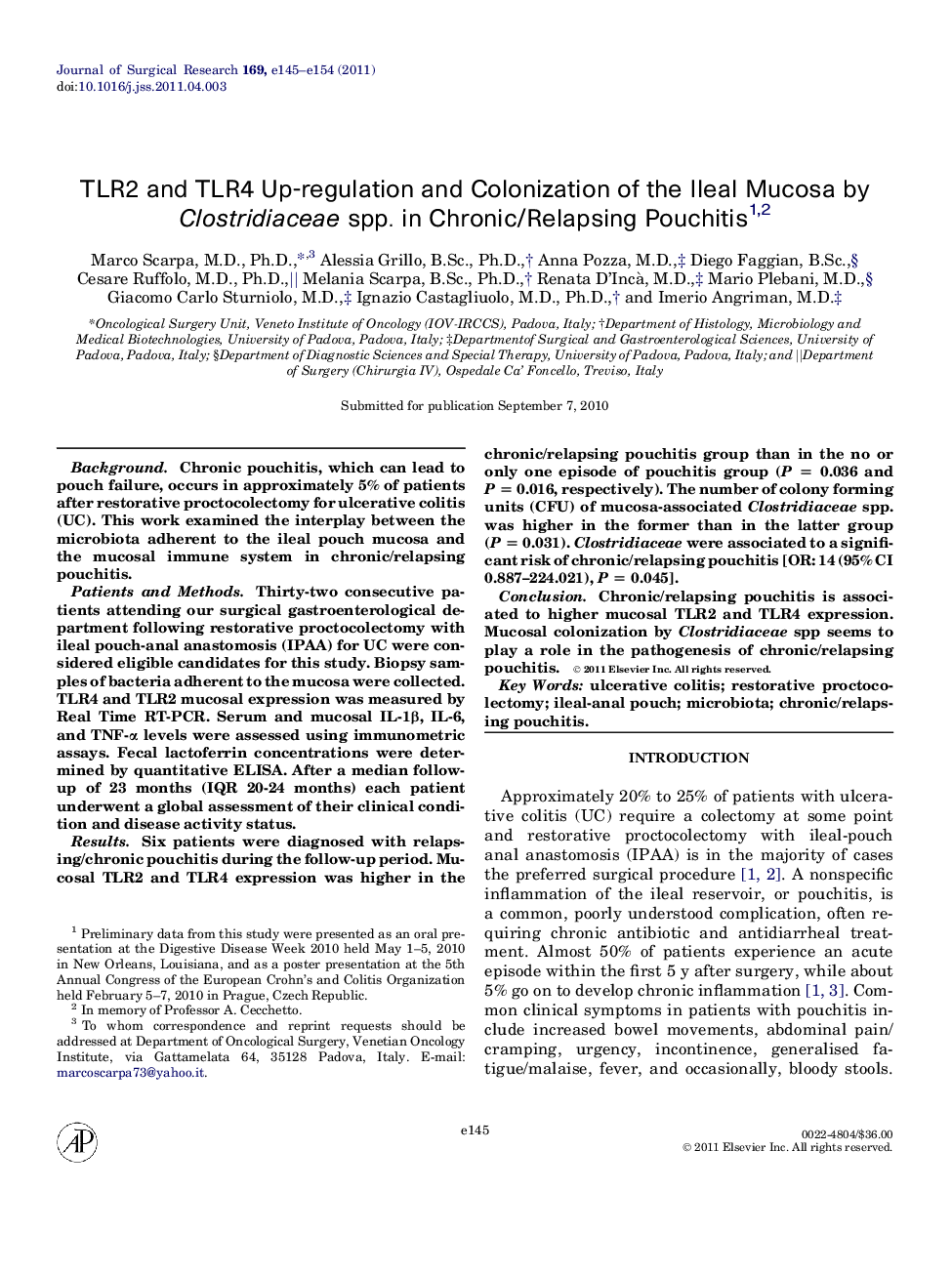| Article ID | Journal | Published Year | Pages | File Type |
|---|---|---|---|---|
| 4302343 | Journal of Surgical Research | 2011 | 10 Pages |
BackgroundChronic pouchitis, which can lead to pouch failure, occurs in approximately 5% of patients after restorative proctocolectomy for ulcerative colitis (UC). This work examined the interplay between the microbiota adherent to the ileal pouch mucosa and the mucosal immune system in chronic/relapsing pouchitis.Patients and MethodsThirty-two consecutive patients attending our surgical gastroenterological department following restorative proctocolectomy with ileal pouch-anal anastomosis (IPAA) for UC were considered eligible candidates for this study. Biopsy samples of bacteria adherent to the mucosa were collected. TLR4 and TLR2 mucosal expression was measured by Real Time RT-PCR. Serum and mucosal IL-1β, IL-6, and TNF-α levels were assessed using immunometric assays. Fecal lactoferrin concentrations were determined by quantitative ELISA. After a median follow-up of 23 months (IQR 20-24 months) each patient underwent a global assessment of their clinical condition and disease activity status.ResultsSix patients were diagnosed with relapsing/chronic pouchitis during the follow-up period. Mucosal TLR2 and TLR4 expression was higher in the chronic/relapsing pouchitis group than in the no or only one episode of pouchitis group (P = 0.036 and P = 0.016, respectively). The number of colony forming units (CFU) of mucosa-associated Clostridiaceae spp. was higher in the former than in the latter group (P = 0.031). Clostridiaceae were associated to a significant risk of chronic/relapsing pouchitis [OR: 14 (95% CI 0.887–224.021), P = 0.045].ConclusionChronic/relapsing pouchitis is associated to higher mucosal TLR2 and TLR4 expression. Mucosal colonization by Clostridiaceae spp seems to play a role in the pathogenesis of chronic/relapsing pouchitis.
